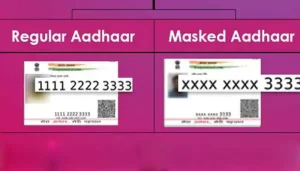To
Shri.Kamalesh Chandra Chairman
Gramin Dak Sevak Committee Ministry of Communication & IT Government of India,
Malcha Marg Post Office Building,
Chanakyapuri, New Delhi – 110 021
Dear Sir,
Thank you very much for your letter No.9/GDS-KCC/2015 dated 28-03-2016 seeking my views and suggestions with regard to improving the service conditions of 2,59,794 Gramin Dak Sevaks working in the Postal Department. My considered opinion and suggestions are as follows:
1. Status of the Gramin Dak Sevaks:
In Para-2 of your letter it is stated that “the status of Gramin Dak Sevaks is that of holders of civil posts outside the regular civil services and hence they are not considered at par with regular employees”. The above stand of the Postal Department is contradictory to the observations made by the Hon’ble Supreme Court in Rajamma’s case (also called Gokulananda’s case) in the landmark judgement of 1977. The Apex Court has observed as follows;
“It appears from the rules that employment of an Extra-Departmental Agent (now redesignated as Gramin Dak Sevaks) is in a post which exists, apart from the person who happens to fill it at any particular time. Though such a post is outside the regular civil service, there is no doubt that it is a post under the state”.
1 When they are holders of civil posts, how can the Postal Department take a stand that they cannot be considered at par with regular employees?. In the above judgement Apex Court has not stated that Gramin Dak Sevak is not a civil servant. It has only stated that GDS are “holders of civil post outside the regular civil service”. “Outside the regular civil service” means they are not regular (full-time) Govt, employees as they work for lesser than 8 hours a day as per the GDS rules. They are civil servants (Govt, employees) but not regular Civil Servants. They have every right to get all the benefits of the regular departmental employees, of course, on pro-rata basis i.e., commensurate with the hours of duty they are performing. The Committee may consider this point and recommend accordingly.
2. Pay and Allowances:
In para-10 of your attached note it is stated that “the different categories of Gramin Dak Sevaks are paid Time Related Continuity Allowance (TRCA)”. This means that GDS are not granted “Pay” but “Allowance” only as monthly remuneration for the work performed by them. When they are holders of civil post, denial of “Pay” is discriminatory. They should be granted Pay Scale, increment and all other allowances admissible to comparable categories of Departmental employees on pro-rata basis.
3. Minimum wage and working hours:
In para 1.2 of your note it is stated that GDS are mandatorily required (as per their Recruitment Rules) to possess independent source of income besides the monthly allowance paid by the Government, for adequate means of livelihood for themselves and their families. The post of GDS is much lower than the lowest post of Group-D (Class IV) in the Central Govt. Departments which are now upgraded as Multi-Tasking staff (Group-C). It is logical to presume that those who have adequate means of livelihood from other independent source to subsist will not volunteer to join as GDS. This condition has not taken into account the ground realities prevailing now in rural areas. There is no apparent reason as to why a person who can subsist on his own source of income should volunteer for GDS job. It is a fact that the GDS cannot go for any other job on the day when he is performing his GDS duty. In the rural villages there is no such part-time job, which can be performed by the GDS after completion of his/her own GDS duty. Thus it is evident that huge majority of the GDS has to solely depend upon the wages he is getting from his GDS job, for ensuring the livelihood of himself and his family. As such the following points may be considered favourably.
(a) the condition precedent of adequate means of livelihood for getting an employment under Central Govt, is constitutionally invalid and hence the said condition is to be deleted from the Recruitment Rules of GDS.
(b) the GDS shall be paid for minimum five hours and maximum eight hours. (Now the minimum is three hours and maximum five hours). Even if the work hours is less than five hours, minimum five hours wages shall be paid, as he cannot go for any other job after performing the GDS duty.
Further it is also to be viewed in a humanitarian angle, as the GDS and his family is wholly dependent on the income he is getting from his GDS duty.
4. Pension and Pensionary benefits:
In your attached note it is stated that Gramin Dak Sevaks are not covered by CCS (Pension) Rules 1972 and at the time of discharge they are paid Ex-gratia gratuity and severance amount. Further against para-14 it is stated that a Service Discharge Benefit Scheme was introduced by the Government on 01-04-2011 for the benefit of Gramin Dak Sevaks on the basis of the New Pension Scheme (NPS). In this regard, the committee may consider the following:
(a) All GDS who joined service before 01-01-2004 shall be brought under the Old Pension Scheme as per CCS (Pension) Rules 1972 at par with Departmental employees.
(b) Notwithstanding our demand to scrap the New Pension Scheme, till such time, for those GDS who joined service after 01-01-2004, the existing service discharge benefit scheme may be modified as New Pension Scheme and percentage of contribution by Department and GDS shall be same as in the case of NFS for departmental employees.
5. Promotional Avenues:
Under SL-9 of your note it is stated that Gramin Dak Sevaks have opportunity for absorption to regular posts of Multi-tasking Group-C, Postman, Mail Guard, Postal Assistants and Sorting Assistants cadres on direct recruitment basis. On enquiry it is gathered that only a microscopic minority of the total GDS staff, get such opportunity for promotion or absorption in the cadres mentioned above. Majority of the GDS enter the service as GDS and retire as GDS in the same post. There is no financial upgradation or grade promotion available even after 40 years of service. This has led to large scale discontentment and frustration among GDS. In the case of departmental employees, it is leamt that three financial upgradation (Assured carreer profession) is available within 30 years of service in addition to the normal channel of promotion. In the case of GDS also three financial upgradation on completion of 10, 20 and 30 years shall be granted as in the case of departmental employees.
6. Medical Facilities:
In your note, it is stated that currently they do not enjoy the health care facilities or the reimbursement on medical care like other departmental employees. It is really pathetic to note that even after 68 years of Independence, a section of the employees working in one of the prestigious department of Govt, of India, the Department of Posts, are not having any kind of medical facilities. Needless to say that health care benefit is an essential part of Govt, employment and as such there is no valid reason to deny the medical facilities to GDS. The committee may recommend Medical Reimbursement Scheme for GDS on top priority basis.
7. Leave:
In your note it is stated that Gramin Dak Sevaks are granted paid leave at the rate of 20 days in a year without accumulation. Further it is stated that Women GDS have also been provided to be granted maternity leave not exceeding six months covering the pre and post confinement period. On enquiry it is leamt that the information furnished by you in the note regarding maternity leave is incorrect and as on date women GDS are not eligible for six months maternity leave, as per the existing GDS Rules. As such information furnished in your note is misleading. GDS shall be granted proportionately all kinds of eligible leave at present available to other departmental employees such as Earned Leave, Half Pay leave. Commuted Leave, Maternity leave. Child Care leave etc.
8. There are many other issues relating to GDS which require judicial and humanitarian consideration. I, hope that the GDS Committee shall examine all those cases in a dispassionate and judicial manner and do justice to the 2.5 lakhs exploited and marginalised section of Central Government employees. The weak and downtrodden need protection.
Once again, 1 thank you very much for eliciting my views on this important matter.
Yours sincerely






Be First to Comment